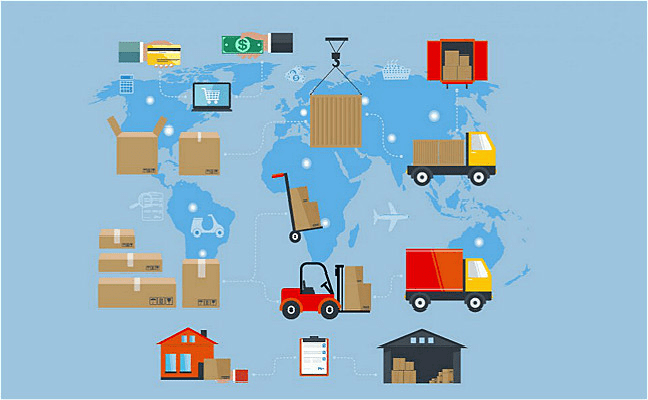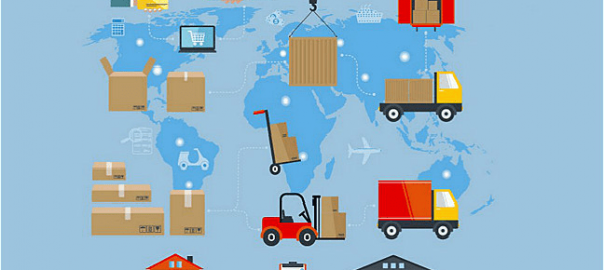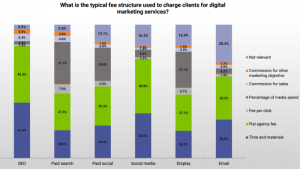
Image courtesy of Slideshare
Building a business is hard and retail business is especially hard. Many retailers were forced to close their doors or file for bankruptcy during the pandemic, including some of the best-known brands, such as JCPenney, Kohl’s, Macy’s, and Nordstrom’s. Yet, wholesale businesses, such as Amazon, saw profits skyrocket. Considering a wholesale business makes sense, and a pandemic might be the right time to start one yourself.
What is a wholesale business
According to Shopify,
Wholesaling is the act of selling your products in bulk to another retailer, usually at a discounted price, who then sells the product to their customers.
It’s important to note that creating a wholesale channel for your business still allows you to sell your product to the end consumer.
Wholesalers sell their products for a lower unit price because they sell in bulk, making a small profit across a very large number of products sold. Thus, wholesale markups are much smaller than those of retailers, commonly only around 15-20% (as compared to retail markups of 100% to over 1000% depending on the type of product).
Wholesales perform a key function in modern supply chains that reduce the handling costs and time involved in the selling process. Producers or manufacturers form the backbone of the supply chain, although most use a distribution channel that involves wholesalers to better serve the retail customer.
Wholesale businesses perform the following necessary functions:
- Accumulate large quantities by purchasing truckload or larger purchases
- Break these bulky purchases to provide variety to the retailer
- Financing by buying before the sale to an end consumer to provide capital for manufacturers
- Transportation
- Risk-taking by assuming the risks involved in damage, theft, or obsolescence of products
- Information sharing between the manufacturer and retailer
The profitability of a wholesale business
Being a wholesaler offers access to a wide variety of outlets and enables you to connect with a broad customer base. Providing products at wholesale enables wider audiences access to the products manufactured by firms within your supply chain; therefore, you can expand the business quickly. The following are issues involved in running a wholesale business.
Wider expansion
A wholesaler offers a manufacturer a vehicle to reach beyond the firm’s own sales opportunities by maintaining close relationships with retailers. For instance, imagine trying to sell your product into Walmart or another big retailer? You’d never get a meeting (or at least it’s very unlikely you’d gain access to their buyers), so you’d never break into the market.
As a wholesale business, you act as the conduit between manufacturers and retailers by maintaining great relationships with both industry groups. Commonly, you also send sales representatives to meet with buyers from retailers to present new products, address concerns, and provide personalized customer service.
Online wholesalers also function in the marketplace as a repository for retailers looking to expand their customer offerings. These online options are especially important for international retailers who wish to offer unique products available globally.
Imagine a world without wholesalers where retailers must deal with each manufacturer, creating a nightmare of interactions the retailer must manage. Similarly, our logistics system isn’t efficient with small shipments, hence retailers in a world without wholesalers would offer limited product lines to customers. As a customer, this means multiple trips to various stores to satisfy your needs or huge payments for shipping products directly to your home.
Better brand awareness
Working as a wholesale business offers a great opportunity to generate brand awareness for the product portfolio you represent. Rather than consumers buying exclusively from a specific shop with limited offerings, they visit retailers who carry a large variety of products.
Collaboration for advertising and promotion across the wholesale business to the retailer means a lot of customers who otherwise might not know about a product learn about it and can compare across options. This extensive exposure enables you to build stronger brand awareness.
Leveraging the potentials of various distribution methods
Various methods are used by wholesalers based on the needs of retailers, the nature of the product, distribution channels, and, to an extent, on historical trends in the industry. While you might think of wholesalers as folks operating huge warehouses with truckloads of goods moving through their facilities each day (we call these full-service wholesalers), a variety of other wholesale options exist. Among them are:
- Agents and brokers who represent manufacturers without taking ownership of the product, but work on commission.
- Rack jobbers — who represent perishable products like bread and beer. They also perform the function of stocking the product at the retail store, removing products approaching their expiration date to ensure fresh products are always available.
- Dropshippers
Dropshippers are an interesting option for wholesaling. When I was first teaching in the early days of e-commerce, a student earned a good living acting with dropshippers, who fulfilled his orders by sending products directly to the consumer once he received an online order for the product.
In this wholesale business, the order comes directly to you, and you ship the product directly to the customer. This allows you to obtain the benefits of being a retailer while retaining the inventory ownership.
Other types of wholesalers used for specific functions include:
- Manufacturer’s reps who represent non-competing manufactures, usually in a similar niche, by acting as the sales force for the company
- Freight forwarders who facilitate international distribution
- Limited-service wholesalers who provide some subset of services provided by a full-service wholesaler
Final thoughts
In the supply chain domain, retail and wholesale functions are two major aspects of the distribution process. The main objective of wholesalers is to sell goods to retailers or businesses, who then sell to the final customer.
Both of these business forms represent essential opportunities. Above, we mentioned some of the benefits associated with wholesale business. If these advantages align with your business objectives, then starting a wholesale business might be the one for you.
Business & Finance Articles on Business 2 Community
(63)







